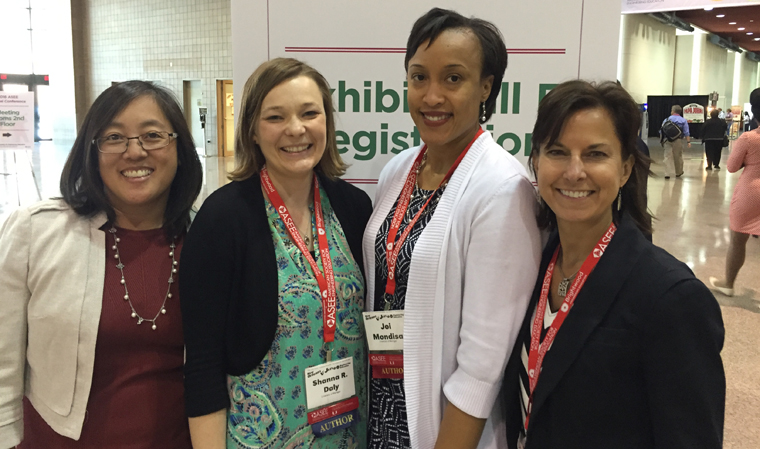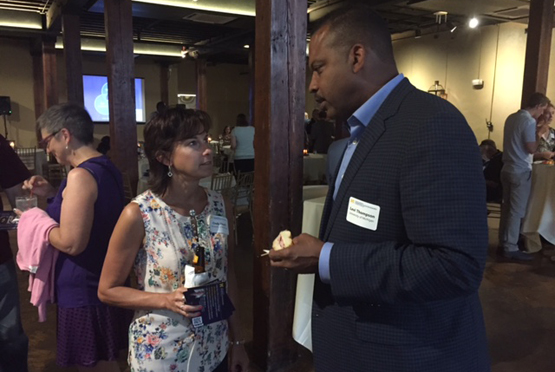Pioneering engineering education research
In the first approach of its kind, U-M is making big strides in the field of Engineering Education Research (EER).

 Enlarge
Enlarge
A new initiative at the College of Engineering has brought U-M into the spotlight in the field of Engineering Education Research (EER). Spearheaded by Prof. David C. Munson, Jr. while he was Dean, the College is taking a unique approach to EER by embedding faculty directly into traditional engineering departments. A few other institutions had already developed standalone departments or schools for EER with their own sets of faculty and PhD students, but U-M’s approach is the first of its kind.
“The model that we’re using at Michigan is really different,” says Prof. Cindy Finelli. “A lot of people are watching to see what we’re doing.”
In 2015, Prof. Finelli, who established U-M’s Center for Research on Learning and Teaching in Engineering in 2003 and served as founding director for 12 years, was the first faculty member hired into the effort. She currently teaches an introductory circuits course for electrical engineering and computer engineering undergraduate students. Munson then hired Shanna Daly (Mechanical Engineering), Joi Mondisa (Industrial and Operations Engineering), and Aileen Huang-Saad (Biomedical Engineering). Each has her own specialty within the field of EER.

 Enlarge
Enlarge
To help spread the word about Michigan’s unique approach to EER, Prof. Finelli organized a reception for EER pioneers and other U-M faculty and friends at the 2016 American Society for Engineering Education (ASEE) conference. More than 100 individuals came, half from Michigan. “There was a lot of buzz generated about what is happening at U-M,” Prof. Finelli says. “The other ASEE attendees all wanted to hear more about what we’re doing.”
The reception was also an opportunity to congratulate Prof. Munson, who was honored with the Benjamin Garver Lamme Award. The award is one of 15 given to selected scholars across the nation who “exemplify the best in engineering education.”
Engineering Education Research is a broad field, and it is different from traditional education research. Engineering students have unique characteristics, according to Prof. Finelli. “They learn differently, they think differently, they’re trying to engage differently in materials, and the professional work they’ll be doing is different” she said.
Her own interests include how faculty make decisions about what they’re doing in the classroom, how students understand engineering concepts, institutional change, teamwork in the classroom, and engineering ethics. She’s a Michigan grad, earning her bachelor’s degree in electrical engineering and her master’s and PhD degrees in EE:S. Prior to returning to her alma mater, she taught in the EE department at Kettering University and gradually turned her attention to education. She served as Founding Director of Kettering’s Center for Excellence in Teaching and Learning.
Embedding EER faculty directly in departments gives them the opportunity to work closely with students and other faculty. In addition to teaching, Prof. Finelli is a member of the curriculum committee and offers guidance to other faculty on how to incorporate research-proven techniques into their courses. She plans to expand that effort through workshops and faculty learning communities.
Her next major goal? Help create a graduate program in EER. As an acknowledged pioneer in this field beginning with her first position at Kettering, charting a new path will be the easy part.
August 2, 2016
 MENU
MENU 
